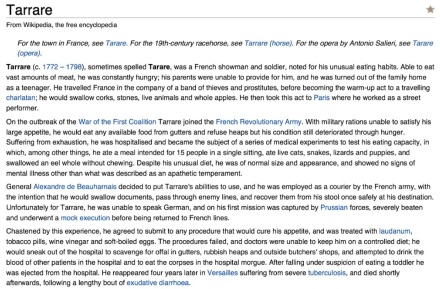Alright. If I knew how to make a Donate button on this thing, I would start taking donations for my 2016 Presidential Campaign. Instead I will have to run with what I have: this blog and the money in my pocket. Just a second…
$1.35
That’s after two liters of water and a Syntha-6 Protein Shake for breakfast. Watch out, Chris Powell. Here I come. Also gaining inspiration from Alchemi Personal Fitness and its owner, my friend Michael Sweet.
So back to why you clearly came to the internet today: to learn about my 2016 campaign platform and to consider whether you would want to be my running mate. Don’t ask now, though. I think that’s against the rules. So….here we go.
Freedom
Our country was founded on it. We all desire it. But are the people in our nation truly free?
Every paycheck you get has a heftier sum taken out of it than before. You are forced to make different decisions because you are taxed so much, and with the current direction of government, you are looking at less and less money that you get to put into your bank account or that pair of shoes you’ve been eying. Keeping your money and spending it how you want? That is freedom.
Our government has continued to tell you what is right and wrong. “Don’t eat that, don’t smoke that, don’t marry them, don’t stand for that,” etc. All can be reduced to this: it isn’t anyone’s business but yours. Do what you want with your life and don’t let others take that from you. That is freedom.
We live in a time where wars continue to go on, nations are suspicious of one another, tensions have built, and our government is suspicious of its own people. Have you been spied on? Will war come to our shores? Should we be afraid? Peace. That is where we find freedom.
But How?
How do we get our freedom back? How do we lower taxes–I mean really lower taxes? How do we gain back a lifestyle where we can live according to our own beliefs and values? How do we live a life without the constant fear of war or spying, etc.? So many other questions that need to be answered for freedom to appear once again in America.
Taxes
The best way for an economy to grow is for people to make money and spend money. When money gets taken away and thrown into an over-sized, over-reaching government machine through taxation, the economy suffers. You can’t buy what you need. Businesses are forced to raise prices, lower wages, or go under. We must lower taxes. When I say “lower” I have in mind a time not so long ago–1913. This is the year the income tax was established, which means our country was doing just fine without it for 137 years. The income tax was established and continues to grow to support a constantly increasing government. Cut the size and power of the federal government, and start cutting the need for the income tax.
“9-9-9” Plans and other smoke and mirror tactics won’t cut it. We need someone in office who will actually commit himself to lowering taxes. Why me? Because I earn an average salary like you. I am affected, too. As President I will lower my own income to match what I am currently bringing in. If I don’t lower taxes, I suffer for it along with you.
Healthcare
Thinking that the government can take care or every individual’s healthcare needs is ridiculous. The more government has gotten involved, the worse it has gotten. The more people want healthcare from the government, the more taxes must be raised–which means less jobs–which means more people needing government health insurance (which will be awful, since the government makes bad investments–keep reading for more on that
).
Solution: get government out of the deal. One of the biggest problems a citizen will face is that the government has restricted competition between insurance companies in different states. Competition is always good–it means higher quality and lower prices. Open up state lines, and see competition at work.
As healthcare costs have shot through the roof, we become less and less able to pay for each other’s insurance and medical care. Hospitals have to charge more to paying patients to cover non-paying patients–which creates more non-paying patients because of high prices! It’s an awful, out-of-control cycle! As non-payment increases, the government increases taxes to help, which further exhausts our paychecks. We are left with Obamacare. You know who hates it the most? The Federal Government who just exempted itself from Obamacare. That’s right. It’s not good enough for them…but you have to have it. Not ok.
I believe in the goodness of people. Before Medicare and Medicaid, people were finding healthcare with doctors who would do work “pro-bono.” Doctors can no longer afford to do this work for fear of frivolous lawsuits or losing their license. It will take time and grandfathering those in who rely already on these government provisions, but we can fix the problem by getting the government out of the medical business.
Illegal Immigration
Two extreme stances seem to exist when it comes to dealing with Illegal Immigration in America. One is complete Amnesty, or just forgetting that a law was ever broken. The opposite side of the spectrum holds that we should round up all illegal immigrants, ship them home, and put up a wall across the entire border with armed guards to keep them from coming back.
Amnesty doesn’t seem to solve any problem at all. In fact, the problem will probably get worse as we demonstrate that there is no such thing as illegal immigration in America.
Rounding millions of people up, shipping them home, building a wall: It can’t be done, it will cost billions of dollars (again-we would have to raise taxes more to afford it), and much of it is inhumane due to our failures to this point. We have encouraged too many to establish families here that would be broken apart.
So what do we do?
First, answer this question: Why do immigrants come to this country illegally? Then, you will begin to understand how to solve the problem.
1) Healthcare
Emergency Rooms are required to offer care to all individuals, regardless of citizenship status or ability to pay. If we allow hospitals and practitioners the ability to do what they deem is right, this attraction will fade. Naturally, with freedom comes risk. What about people who need medical attention immediately despite citizenship factors? Answer: I believe in the goodness of people. When we know that the responsibility is ours (not the government’s) we will help each other.
2) Minimum wage laws
Minimum wage laws are one of the primary agents of destruction in America. When wages are forced unnaturally upward, businesses are forced to 1) Raise wages and keep staffing, but lose money, 2) Raise wages but lower staffing, 3) Raise wages, keep staffing, and go out of business, or 4) Hire illegal immigrants who do not fall under the minimum wage requirements.
Illegal immigrants are happy to take a sub-minimum wage payment in America. Why not? It’s better than no money at all. Sadly, the American citizens suffer as prices go up all around them and job availability goes down.
Remove minimum wage laws.
Businesses will be able to legally hire American citizens. Unemployment will drop as American citizens are able to find work. Business owners will be forced to find a natural-market wage rate to be able to operate. Too low wages? No employees. Too high? Go out of business. Just right? Do well. It just makes sense for everyone.
Just as importantly, illegal immigrants will find themselves unemployed and much less able to thrive. This will have two effects: 1) They will migrate elsewhere or 2) They will seek out legal means of becoming a United States Citizen.
The Environment
Save the rainforest. Save the whales. Save the ozone layer. Save the glaciers. How many campaigns like these have you heard of in your lifetime? Many are stark defenders of natural resources, many don’t care, most are probably somewhere in the middle.
The majority probably agrees on this: Earth and its resources are valuable and we would like to keep them around as long as we can.
Privatize, Privatize, Privatize.
When the government itself takes ownership of a resource, such as a forest, problems start to arise. If the government opens up that forest to lumberjacks and paper-mills, the forest will be depleted as quickly as possible. No company is necessarily to blame-this is simply good business. Get as much as you can, make as much as you can, sell as much as you can for the lowest price.
Consider for a moment, though, if a private citizen/entity was allowed to own that forest. If the citizen allowed a company to come and deplete the forest, she would be out of a job and out of money before too long. She would have a vested interest in a) only allowing certain portions of the forest be cut down at once, and b) growing those sections back to make more money in the future.
Allow private citizens/entities to own natural resources, take them away from the government, and we will find these resources being replenished for the long haul. Same goes with oil wells, land, ocean areas, etc.
Privatize Investments
Keep this in mind: the government can only ever make bad investments.
People, businesses, and banks are intelligent and capable of weighing out what is a good, profitable investment, and what is not. When a profitable investment opportunity arises, private entities will weigh them, measure them, and invest in them.
What is left over, then, is the investment that wasn’t very profitable. How will this guy make money? He has already been to the bank and private investors who said “No.” Go to the government. The government owns plenty of bad investments–and they invested your money, which is now drowning in an illiquid sea.
Bad businesses must be allowed to fail or to transform themselves into something profitable. This is the very idea that will move our nation to the front line of production and technology once again.
Marriage
I am a conservative Christian. As such, I believe that only One has the authority to define marriage: God.
For that reason, Government has no right to define or meddle with marriage at all. This is a place where Christians (or others of religions/beliefs that stand against gay marriage) may disagree with me.
When we grant the Federal Government or the majority of society the power to determine what marriage is and isn’t, we find ourselves quickly in a mess. What “I” hope in such situations is that my beliefs will come out on top, and that marriage will be defined by some people the way I want it defined. But when I have given that power to the gov’t/the majority of voters–that may very well not be the case. The government should not be in the marriage business.
That is between me and whomever I choose to associate myself with. Thus it should be with all. To be “equal” in areas where different beliefs exist, the government simply should not be involved.
Foreign Policy
Seldom has any nation existed for very long in history when it begins to stretch itself thin by meddling with other nations.
The golden rule is perhaps one of the best to apply to foreign policy: treat others the way you wish to be treated.
While we live in a country founded on democracy, (and I love our America’s foundation) to force that idea on anyone else is completely contradictory to the idea itself. The best way to interact with other nations is to build our nations defenses, increase our economy, and promote life, liberty, and the pursuit of happiness within our nation–to demonstrate to the world that Freedom works! Then let them ask us what we are doing right and try it for themselves. Trade openly with them, be friendly with them–but never dictate to them what they will do. This is the essence of Tyranny.
Imagine your neighbor sending a few of her family to live in your house to dictate to you how you will, from here on out, run your life. You wouldn’t like it.
Imagine another nation with a system of government unlike our own setting up shop in Washington D.C. to tell us how to live. We would quickly learn to distrust and dislike them. We may even call on other nations to help us dispel them.
Furthermore–we are bad at meddling. We give money, supplies, and weapons to people who we eventually realize are to be feared. We topple regimes simply to find a worse one following.
Support our troops.
The best way to do so is to clearly define our mission, bring them home to us to protect us and defend us, and stop wasting so much money on needless and ridiculous warfare so that we can pay them! No more precious lives given in wars for which we have no clear victory marker.
The War On Drugs
How well is it working?
Over $24 Billion (with a “B”) has been spent so far this year alone on trying to rid America of its drug problems. How well do you think it’s working? Truth is: it isn’t.
In fact, it is making matters much, much worse. By keeping drugs like Marijuana illegal, we are forcing the demand for a lower supply of it through the roof. This means prices are high, and people are buying.
Who is selling, though? The worst people on the face of the earth. We are helping to make them rich, and in making drug-dealers rich we are making them powerful.
If we were to decriminalize drugs, the opposite would happen.
But won’t everyone start doing drugs?? I wouldn’t, my family wouldn’t, and no one on any of my property would. Why? Because we wouldn’t anyway. Harmful drugs are evil and destroy lives regardless of their legality, so we make our own, educated, decision to stay away. I believe people are not only good, but smart. Furthermore, I believe you should be able to make your own decisions about what goes in your body.
On the other hand, if your decision affects me in a way that I do not wish, you should face a severe penalty. Any homeowner or private business owner has all authority to ban any substance or activity from their place of ownership. The government has a constitutional responsibility to defend these rights, and ought to take it very seriously.
Sound Money
If you don’t balance your finances, you will find yourself quickly without money or credit. Without either, you will be unable to exist.
Why should our government not be held to the same standard? Of course it should. The budget must be balanced and the debt must be paid. Sadly, our government has spent money without thought of responsibility and now extreme actions have to be taken. But it can be done.
We have to return to sound money. No more fiat (fake) money. We will return to the Gold Standard to give our dollars actual spending power. We will, therefore, not need a Federal Reserve and will be able to shut it down and liquidate its assets. That’s right liquidate. Sell them off to start paying down our debt. If I am seeing their balance sheet correctly, that is a quick $3.6 Trillion motion in a very good direction. That’s 3,600 BILLION. That’s 3.6 MILLION MILLIONS.
That is definitely not all I have to say…but hopefully you’re getting the gist. You can donate to my campaign by…oh. Nevermind.
Instead…find me a candidate who says the same stuff and we can vote for him/her together.










